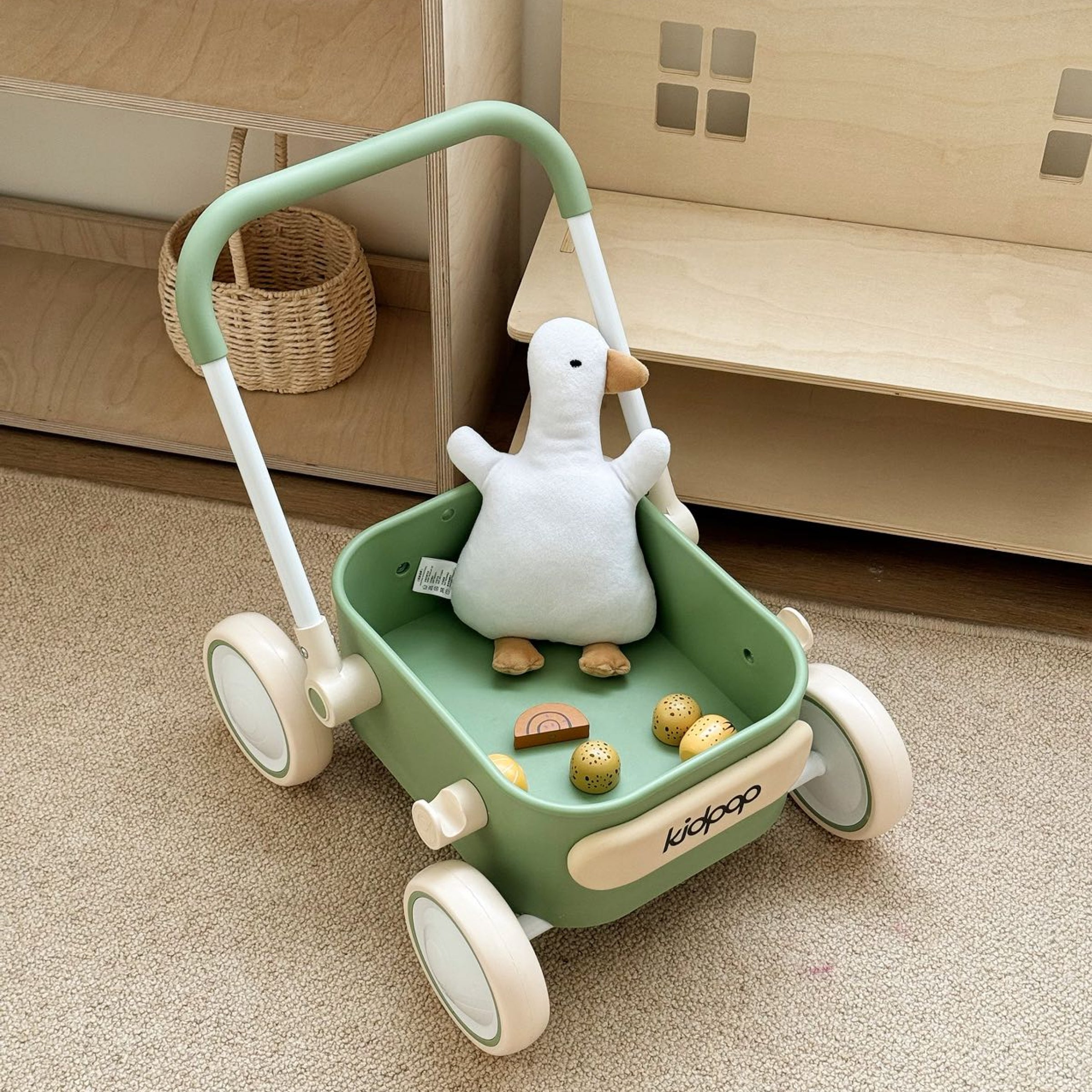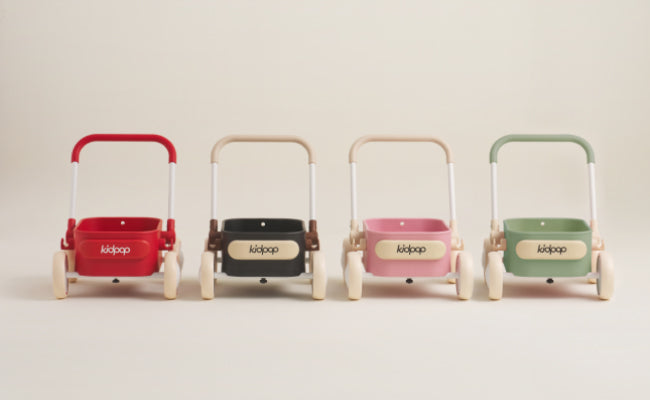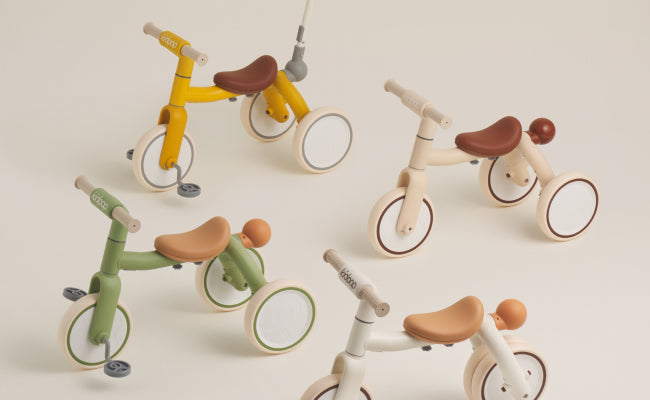
What Toys Encourage Walking? A Guide to Movement-Friendly Play for Babies
The best toys for supporting your baby’s first steps, backed by research and parent experience
Once your baby starts pulling up and cruising along furniture, you may wonder:
“What toys actually encourage walking?”
The right toy won’t “make” your baby walk before they’re ready—but it can provide the support, stability, and motivation they need to take that exciting leap from crawler to walker.
Let’s explore:
-
Which types of toys help promote walking
-
What features to look for (and avoid)
-
Expert-backed recommendations
-
And how to introduce these toys safely and playfully
Why Toys Matter in Learning to Walk
While walking is a natural developmental milestone, babies need:
-
Muscle strength
-
Balance control
-
Motivation to move
-
A safe environment to explore
Certain toys can encourage these skills by turning movement into joyful, low-pressure play. According to a 2021 review published in Pediatrics, play-based mobility—especially using push or pull toys—was linked to earlier independent walking and improved postural stability.
Best Types of Toys That Encourage Walking
Here are the top categories of toys that support walking, as recommended by child development experts and physical therapists:
1. Push Toys & Toddler Wagons
These give babies something to hold onto while practicing upright movement.
Great features to look for:
-
Wide, stable base
-
Adjustable resistance wheels
-
Low center of gravity
-
Soft handles that are easy to grip
Example:
✨ The kidpop PULA Toddler Wagon is thoughtfully designed with child-safe materials, soft rubber tires, and a stable frame—perfect for supporting first steps indoors or outside.
2. Ride-On Toys
Straddle-style toys or scooters without pedals help develop leg coordination and core strength.
Bonus: They offer a natural progression toward balance bikes.
Tips:
-
Choose models low enough for feet to rest flat on the floor
-
Make sure the frame is lightweight and easy to steer
3. Pull-Along Toys
For already walking toddlers, pull toys encourage sustained walking and coordination.
They teach:
-
Cause and effect
-
Directional awareness
-
Rhythm of walking
Choose ones that are:
-
Quiet
-
Safe for hardwood floors
-
Visually engaging without being overstimulating
4. Climbing Blocks & Activity Tables
Not walking yet? Focus on gross motor toys that build strength and balance.
Soft foam blocks, low climbing ramps, and interactive tables support:
-
Pulling up
-
Cruising
-
Weight shifting from side to side
These foundational skills are essential before walking begins.
🚫 What to Avoid
Some toys are marketed as walking aids but can actually hinder development. The American Academy of Pediatrics (AAP) strongly advises against using:
-
Seated walkers (with wheels and leg holes):
These increase fall risk and may delay natural muscle development. -
Overstimulating toys:
Lights, music, and loud sounds can distract more than help. -
Top-heavy walkers:
If they tip forward easily, they may cause injury.
Stick with toys that support, not substitute, real movement.
Walking-Friendly Toy Features Checklist
When choosing a toy to encourage walking, look for:
-
✅ Sturdy, stable structure
-
✅ Encourages upright posture
-
✅ No batteries required (self-driven play)
-
✅ Smooth movement but not too fast
-
✅ Minimalist aesthetics that don’t overwhelm the child
💬 Expert Tip
Dr. Lisa Dana, pediatric occupational therapist, explains:
“The best toys for early walking are the ones that engage without dictating. Let the child explore. Toys should guide—not control—their next move.”
Final Thoughts
Toys won’t teach your baby to walk—but they can give your child a safe, inspiring, and confidence-boosting stage to try. Movement-based play is one of the most powerful gifts you can offer during this beautiful window of growth.
✨ Choose well-made, child-first toys like push wagons, ride-ons, and sensory-friendly gear that encourage independence—step by step.
And remember:
Every step is a story in motion.


